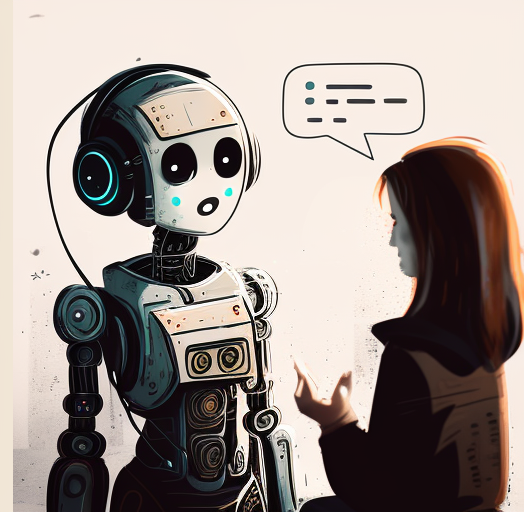Introduction
Before we dive into the resources, let’s briefly understand what Julia is and why it is worth learning. Julia is a versatile programming language designed specifically for high-performance numerical analysis and computational science. It combines the best aspects of other popular languages like Python, R, and MATLAB, offering a seamless integration of mathematical operations and scientific computing. With its fast execution speed and simple syntax, Julia has gained significant popularity among researchers, data scientists, and engineers.
What is Julia?
Julia is an open-source programming language that was first introduced in 2012. It was developed to address the shortcomings of existing programming languages in the realm of scientific computing. Julia provides a high-level, dynamic, and expressive syntax, making it easier for developers to write efficient and readable code. It excels in areas that require intensive numerical computation and is widely used in fields such as machine learning, data analysis, optimization, and simulations.
Why Learn Julia?
There are several compelling reasons why you should consider learning Julia:
- Performance: Julia’s just-in-time (JIT) compilation allows it to achieve performance comparable to statically-typed languages like C and Fortran while maintaining the ease of use of dynamic languages.
- Syntax: Julia’s clean and intuitive syntax makes it easier to write and understand code. It is designed to resemble mathematical notation, which is familiar to scientists and engineers.
- Interoperability: Julia seamlessly integrates with other languages like Python, R, and MATLAB, allowing you to leverage existing code and libraries.
- Parallel and Distributed Computing: Julia provides built-in support for parallel and distributed computing, making it suitable for tackling large-scale computational problems.
- Growing Ecosystem: Julia has a vibrant and growing ecosystem of packages and libraries for various domains, ensuring that you have access to a wide range of tools and functionalities.
Now that we understand the benefits of learning Julia, let’s explore the top ten free online resources that will kickstart your Julia learning journey.
Free Online Resources for Learning Julia
1. Julia Documentation
The official Julia documentation is an excellent starting point for beginners. It provides comprehensive guides, tutorials, and examples to help you grasp the fundamentals of the language. The documentation covers everything from basic syntax to advanced topics like metaprogramming and parallel computing.
2. Julia Academy
Julia Academy offers interactive courses and tutorials for beginners as well as advanced users. Their courses cover a wide range of topics, including Julia fundamentals, data science, machine learning, and optimization. The interactive nature of the courses allows you to practice coding directly in the browser.
3. JuliaBox
JuliaBox is a cloud-based platform that provides a web-based Julia development environment. It allows you to write, execute, and share Julia code through your browser without the need for any local installation. JuliaBox is particularly helpful if you don’t have Julia set up on your machine or if you want to collaborate with others.
4. JuliaCon Videos
JuliaCon is the annual conference for Julia users and developers. The conference features talks, workshops, and tutorials by experts in the Julia community. The JuliaCon YouTube channel hosts recordings of these sessions, giving you access to a wealth of educational content on various Julia-related topics.
5. Coursera’s Julia for Data Science Specialization
If you prefer a structured learning approach, Coursera’s Julia for Data Science Specialization is an excellent choice. This specialization consists of a series of courses that cover Julia programming, data manipulation, visualization, and statistical inference. By completing the specialization, you will gain a solid foundation in Julia and its applications in data science.
6. Julia Programming for Operations Research
For those interested in operations research and optimization, the “Julia Programming for Operations Research” course by MIT OpenCourseWare is highly recommended. This course introduces you to the basics of Julia programming and demonstrates its use in solving optimization problems commonly encountered in operations research.
7. YouTube Tutorials
YouTube is a treasure trove of Julia tutorials and video resources. Several channels offer comprehensive tutorials for beginners, covering topics such as Julia basics, data analysis, machine learning, and more. Explore channels like “The Julia Programming Language” and “JuliaAcademy” to find engaging video content tailored for learners of all levels.
8. Julia Discourse Forum
The Julia Discourse Forum is a vibrant community where users and developers come together to discuss Julia-related topics. It’s an excellent place to ask questions, seek guidance, and learn from experienced Julia users. The forum hosts discussions on various Julia packages, projects, and general programming techniques.
9. GitHub Repositories
GitHub hosts numerous Julia repositories with open-source code and projects. Exploring these repositories allows you to learn from real-world Julia implementations and gain insights into best practices. You can find repositories related to machine learning, data analysis, optimization, and more.
10. Blogs and Articles
Several Julia enthusiasts and experts maintain blogs where they share their knowledge and experiences. These blogs cover a wide range of topics, including Julia tips and tricks, package reviews, and application showcases. Some popular Julia blogs include “Julia Computing Blog” and “Stefan Karpinski’s Blog.”
Conclusion
Learning Julia can be an exciting journey for anyone interested in scientific computing, data analysis, or machine learning. With the availability of free online resources, you can start learning Julia today. The resources mentioned in this article, including the official documentation, Julia Academy courses, JuliaBox, JuliaCon videos, and more, will equip you with the necessary skills to write efficient Julia code and leverage its powerful capabilities.
So, what are you waiting for? Start your Julia learning adventure now and unlock the vast potential of this cutting-edge programming language!










Leave a Reply